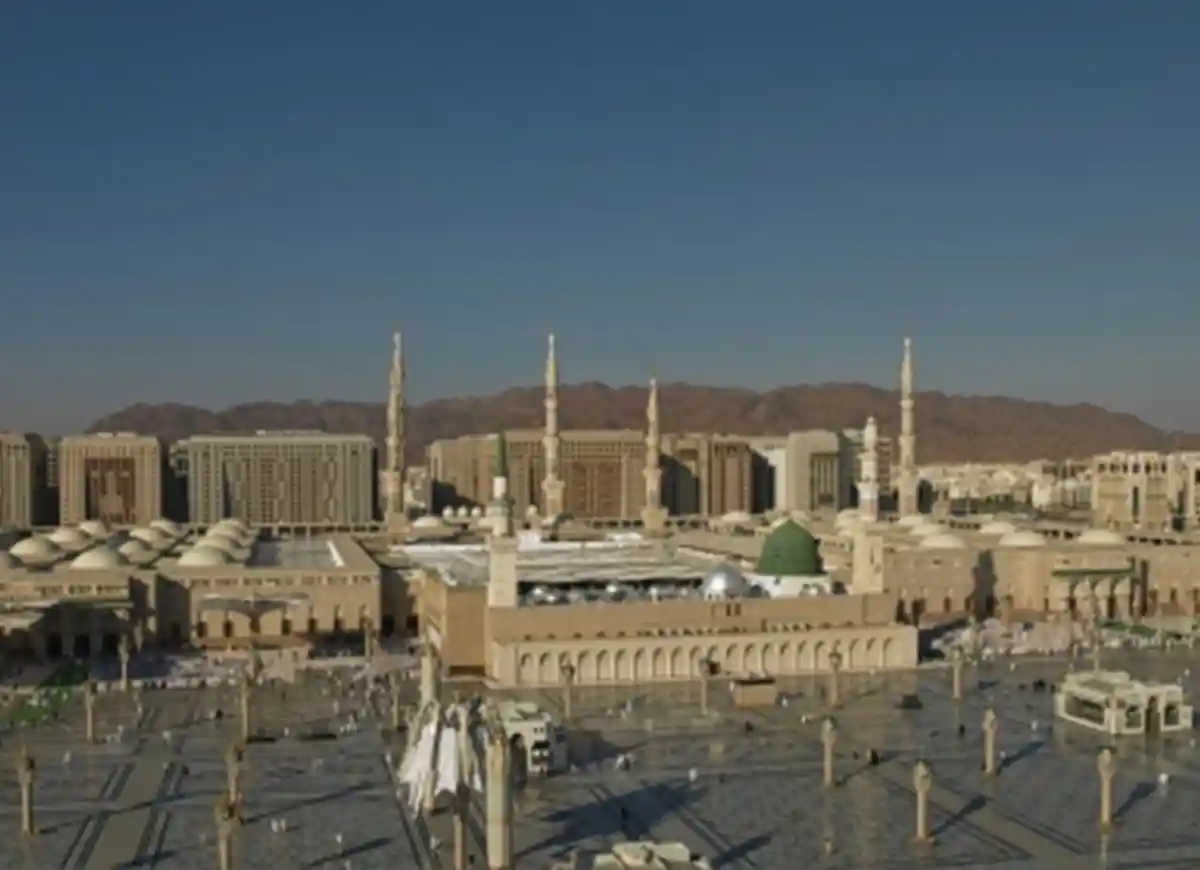Prophet Isa – Jesus of Nazareth is one of the most revered religious figures in the world. Not only is Jesus central to Christianity, the world’s most popular religion, but Islam, the second most popular religion, also holds him in high regard.
Christians may be surprised to learn that Muslims believe in the Virgin Birth and the miracles performed by Jesus. However, Muslims’ interest in Jesus’ teachings extends beyond that.
The supernatural element of Jesus’s life has overshadowed his value as a biblical prophet in the age of scientific discovery. Thus, there are more important concerns for both Muslims and Christians to answer than whether or not Jesus could walk on water or raise the dead.
The Muslim view holds that Jesus’ primary purpose was not to bring forth the miracle bread or to contradict our beliefs, but rather to enrich Torah traditionalism by introducing a grace that is uncommon in the Old Testament. His deeds and words introduce monotheism to something entirely new.
They breathe life into the altruistic spirit that is God’s very nature. Jesus stood up for the Torah by emphasizing the continuity of his ancestry, but he also stressed the importance of compassion and self-purification as a bridge between knowing the meaning of God’s word and being able to put it into practice.
It’s interesting to note that some recent research by New Testament scholars appears to be arriving at a Christological perspective that isn’t all that different from Muslims’. Jesus does not appear to us and the scholars they study as an actual God-like son, but rather as God in human form—as a wise teacher, an inspired human being, and a source of unwavering love for God. In each, Jesus is shown as a unique person who spoke to everyone using language that was understandable to them.
There are two major incidents that took place during the prophet Muhammad’s lifetime that could account for Muslims’ reverence for Jesus Christ, the Christian Jesus.
The first one concerns Waraqa Bin Nawfal, an elderly Meccan inhabitant. The man was Muhammad’s wife Khadija’s uncle and an early Arab Christian. We know that he was a spiritual person by nature, that he could read Hebrew, and that in 595 C.E., he attended Muhammad’s wedding with Khadija. Fifteen years later, a nervous Khadija brought her husband to Waraqa, who she was searching for.
Muhammad was a well-known family guy at forty years old at the time. Extremely anxious, he entered into that “family therapy” session. He was frightened. He was in a cave on the outskirts of town, meditating. He experienced something so horrifying while he was asleep that he considered going into possession. He was hearing a voice.
Waraqa heard his story, which Muslims will know as the account of Muhammad’s first meeting with the angel Gabriel. Waraqa told him he didn’t have a spirit once the event was over.
“What you have been listening to is the voice of God’s spiritual emissary to Moses. Whenever you become a prophet, I want to be a boy! I would dearly wish to survive till your people drive you out.”
“Will they deport me?” Muhammad enquired.
“Yes,” the elderly man replied. “No one has ever shared the facts you supply with his people without encountering hostile responses. I’ll be with you if I live to see that day.”
An aphorism that is connected to Jesus can be identified by Christians in Waraqa’s remarks: “A prophet is not unworthy of honor, except within his country.” It may surprise some, nevertheless, that a Christian would have needed to confirm Muhammad’s prophetic status first.
In 616, there was another noteworthy incident concerning Islam and Christianity. Muhammad only started speaking in public a few years later. As Waraqa had predicted, the initial attempt to revive the Abrahamic practices in Mecca was met with violent hostility.
Perhaps Muhammad’s claim to be the sole one irritated the Meccans. It’s possible that his faith in an omnipresent, unseen God had an impact on the local economy.
A month’s journey south of Syria and Persia’s political hubs Mecca was a poor, isolated city that relied on long-distance trade and the yearly pilgrims who came to worship a variety of pagan gods and pay a tax in their honor.
Conversely, the bold claim made by Mu
Hammad that “God is one” could be found anywhere did not sit well with the Meccan traders.
Numerous recently converted Muslims suffered from torture. Their families were tortured, and their livelihoods were in jeopardy.
Muhammad led a smaller party of his followers across the Red Sea in 616 to seek safety in the Christian kingdom of Axum as things became worse and worse.
He assured them that they would be able to locate the Negus, a devout leader who would watch out for them. The Negus was found by the Muslims at his palace, which was located in the border region between modern-day Eritrea and Ethiopia.
When a Muslim was able to quote a couple passages from the Qur’an to him regarding the Virgin Mary, he too stood up for them. The words spoken caused the Negus to cry. There was no difference between Muslims and Christians. Nothing is more distinct than the size of a single tree, according to him.
The two narratives in these two chapters demonstrate the assistance that Christians provided to Muhammad during difficult times. The lesson from the narrative is interpreted by the Qur’an as follows: those who say, “We ourselves are Christians,” have the monks and priests within them and are the ones who feel the most affection for us (those who believe in the Qur’an).
They lack conceit. If they are paying attention to what We have shown Muhammad, they have tears in their eyes.
To be honest, they will discover that.
Since Muslims still consider Jesus to be a prophet, you will still hear the phrase “peace and peace be with him” when someone mentions him.
Our religion is based on God and the knowledge that has been transmitted to us, including the revelations that God gave to Abraham, Ishmael, and Isaac as well as to Jacob and their descendants.
What was the gift that the Lord gave to Moses, Jesus, and all the prophets?
We don’t distinguish between the two.
These verses from the Qur’an make it very evident that Muslims consider Jesus to be among the greatest instructors. There is a long lineage between Jesus and his mentor John the Baptist that dates back to the first manifestation of ethical monotheism. In addition, Muslims hold the view that Jesus is a unique kind of prophet, capable of speaking of divinity not just in words but also via deeds like miracles.
It is said that Muslims and some Christians should share the same perspective on the Jesus picture that was produced between the fourth and fifth century. Muslims believe that in the fourth and fifth centuries, certain myths were incorporated. There are three that deserve special attention. The first is that Muslims do not view monastic asceticism as a component of Jesus’ teachings, but rather as a later development.
The second is that it is accurate to say that people who were unaware of Jesus contributed embellishments and deletions to the New Testament after his death. Thirdly, Muslims consider the notion that Jesus is the son of God to be false.
Although Muslims consider Jesus to be a human person inspired by God, they never refer to him as “the God of the universe.” Similarly, we consider the concept of the Trinity to be a creation of our imagination. Two centuries after Jesus’s death, Tertullian, a North African theologian, developed the thin “mystery” known as the Trinity as a footnote to his teachings.
Nor is it true that Muslims view his death as a means of atoning for humankind’s transgressions. In actuality, Islam rejects the idea of the sin of the first, which was incorporated into church dogma by Saint Augustine sometime around the year 400, much as did the first Christian thinker, Pelagius.
One could argue that Islam shares a perspective on Jesus with some of the early apostolic views that the Byzantine Church rejected in the fourth century. An uproar broke out when Constantine made Christianity the official religion of the Roman Empire, and orthodoxy became a contentious issue.
Allegedly held by “heretical” religious leaders, the councils of Nicaea (325), Tyre (335), Constantinople (381), Ephesus (431), and Chalcedon (451), all attempted in official capacity to eradicate heterodox perspectives on Jesus.
Because of the decisions made by these councils, tens of thousands of early Christians were persecuted and killed by other “orthodox” Christians who disapproved of the councils. Most disagreements centered on different interpretations of the Trinity. For this reason, religious historians frequently attribute the early Islam’s highly homogeneous viewpoint to the deadly divisions.
Nothing poses a greater threat to a follower of Islam, both historically and currently, than the Muslim separation of God’s unity into two or three parts.
The Qur’an frequently counsels Muslims not to debate theology with monotheists, even in spite of these stark contrasts. People are not the same for good reason, according to the Qur’an. This is actually a component of Allah’s plan.
Michael Wolfe is the author of multiple works on travel, history, poetry, and fiction. “The Hajj” (1993), a first-person narrative of a voyage, and “One Thousand Roads To Mecca” (1997) are two of his works.
The latter is a compilation of tales about pilgrimages written by travelers over a ten-year period. Muslim travels. Additionally, he produced “Muhammad The Legacy of the Prophetess,” a comprehensive PBS documentary about the life of the Prophet Muhammad.
Categories: PRAYER (Salat), ALMS (Zakat), SAWN (Fasting) HAJJ (Pilgrimage) & DUA (Supplications), Hadith and Tafseer, The Holy Quran, Quran Jaz 1- 114
Topics: Ushr and Zakat, Hijab, Arabic Corner, Faith, Islamic History, Biography, Sirat ul Nabi PBUH, Islamic Studies, Halal & Haram
Hajj:
- What is Ihram Haji ? | Hajj and Umrah-Quranmualim
- Importance of The Days of Zil Hajj | The Day of Arafah
- Define Menses during Hajj and Umrah | Mina in Makkah
- The Holy pilgrimage of The Messenger | The Rituals of Hajj
- 3 Types of Hajj | Tamattu | Ifrad | Hajj Qiran – Quranmualim








